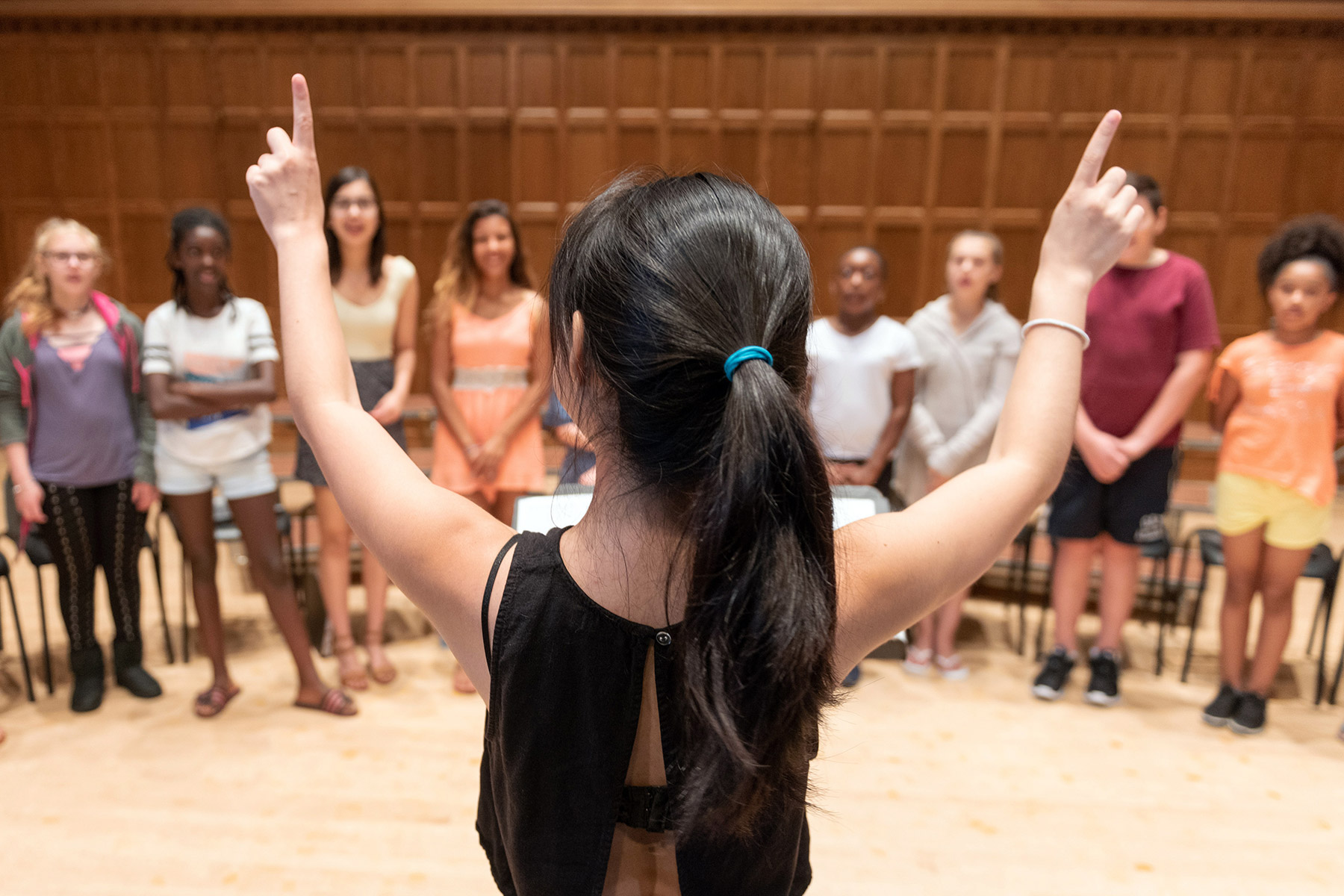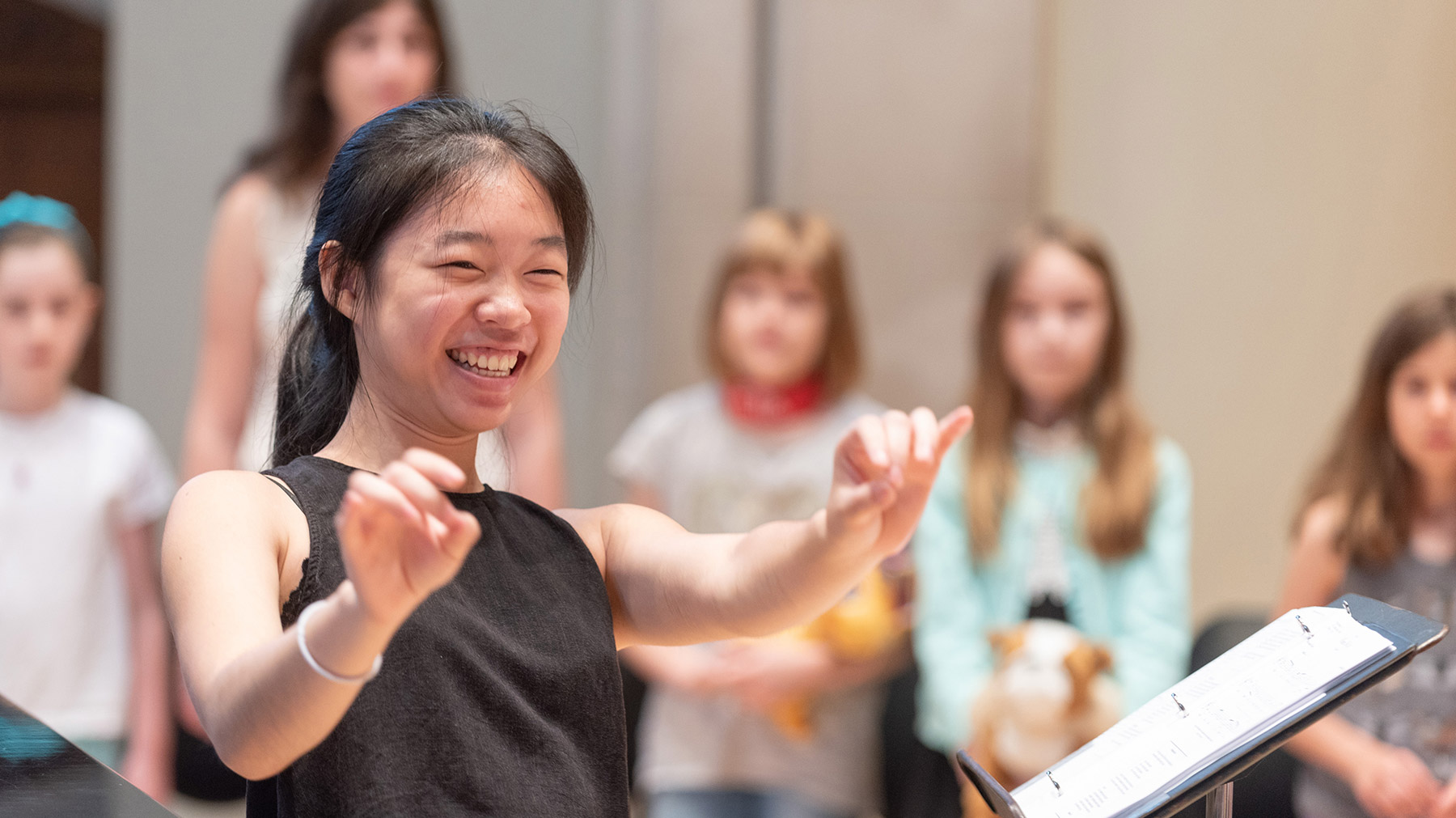Nina Zacharia ’20 spent part of her summer exploring abandoned factories. Linda Liu ’19 directed a youth choir. Josh Kim ’20 and Yangao Geng ’20 analyzed government documents containing data filed by major corporations. These were some of the activities undertaken this summer by students enrolled in Vassar’s Ford Scholars program.
Since the program was established in 1988 with a grant from the Ford Foundation, Vassar students have been collaborating every summer with members of the humanities faculty on a wide variety of research projects. While the original Ford grant has since expired, the Ford Scholars program continues to thrive, thanks to donations from alumnae/
Associate Prof. of History Quincy Mills, director of the Ford Scholars program, is working with more than 20 other Vassar faculty members this summer. Projects included research by students and faculty in the following departments: Chinese and Japanese, Economics, Education, English, Environmental Studies, Film, History, Math and Statistics, Music, Political Science, Religion, Sociology.
Mills said program enables students to use what they have learned at Vassar to analyze complex issues in a more comprehensive manner. “Through this work, students gain intensive experience gathering, entering, coding, and analyzing quantitative and qualitative data,” he said. “While they gain considerable research skills, with the guidance of a world-class faculty, they engage rigorous research questions that open multiple doors of inquiry, hopefully leaving them more curious, with more questions. In the end, Ford Scholars gain a window into their professors’ scholarly processes.”
The students will present their work at the annual Ford Scholars Symposium, which will be held Sept. 17 from 5 to 7 p.m.in the Class of ’51 Reading Room in Thompson Library.
Following are brief reports on three Ford Scholar projects:
Income inequality in America: Assistant Prof. of Economics Dustin Frye and Nina Zacharia ’20

In the 1950s, manufacturing jobs were the engine that drove a significant portion of the U.S. economy, helping to foster a hefty middle class. What happened when those jobs dwindled as companies either moved them overseas or demand
Scouring government data on wages and industries in the more than 3,100 counties in the United States, Zacharia and Frye looked for patterns to emerge when employment opportunities shifted. In Dutchess County, NY (where Vassar is located), a majority of its workers were employed by just three manufacturing firms.
“I was surprised by the level of concentration, how just one or two industries dominated,” said Zacharia, an economics and mathematics double major from Scarsdale, NY.
The good news: wages for these jobs were relatively high. The bad news: the high concentration of employment in just a few sectors triggered a major economic upheaval when these firms left town. As part of their research, Frye and Zacharia visited some abandoned factories in Beacon, about 15 miles from the Vassar campus. And what happened in Dutchess County in the 1950s and 1960s was happening all over the country. The result: wage growth for most Americans has been sluggish ever since. “The income equality we saw in the 1950s gradually shifted to an imbalance by the 1970s, and it has continued to the present day,” Frye said.
Frye said he chose Zacharia to work on the Ford Scholars project in part because she was already familiar with the software required to gather and analyze U.S. Census data. “She had enough background in the field to be able to synthesize the data and to look for trends and anomalies,” he said.
Zacharia said her work this summer enhanced those skills and helped her gain new ones. “What I did on this project has been great training for what I’ll be doing in graduate school,” she said. “I learned a lot about the process of gathering data, and that skill is much stronger now.”
Diversity in Choral Music: Associate Prof. of Music Christine Howlett and Linda Liu ’19

Liu says two of her passions are education and music. So when she had the opportunity to apply for a Ford Scholars project with Howlett that combined the two, she didn’t hesitate. Liu spent two weeks as a counselor at a music education camp at St. John’s Lutheran Church in Poughkeepsie. When the camp concluded, Liu directed a youth chorus at the Capella Festiva Summer Choral Festival at Skinner Hall. She spent the balance of her time researching choral music in archives in Skinner Hall, looking for works with diverse styles, languages
Liu said she thoroughly enjoyed both components of her summer job. “If I had to describe my camp experience in one word it would be ‘fulfilling,’” she said. “I had worked at a camp before, but this time I took an active role in teaching music, and I’d never done that. Choir music has a special place in my heart (Liu will be directing Vassar’s Camerata Chorus in the fall), and working with these young people and learning about their interests was really rewarding.”
Liu said she began to learn new things about choral music even before she began her Ford Scholars work. “When I was prepping for the interview, I spent some time in the music collections in the library and discovered a Chinese composer, Chen Yi, whose music really jumped out at me,” she said. “I really established a foundation this summer that I hope will be a springboard to more comprehensive research by other students in the future.”
Liu said conducting the youth choir at the Capella Festiva concert was definitely one of the highlights of her summer. “Every concert has a bit of chaos a half hour before the performance, but it went off beautifully,” she said. “Singing for yourself is one thing; singing for an audience is something else, and the kids really loved the experience, showing off before their parents and friends.”
Exploring the impact of the 2017 tax repatriation holiday: Assistant Prof. of Economics Esteban Argudo, Ningyao

Advocates of legislation cutting federal income tax rates contend the practice stimulates the economy, creating jobs and boosting living standards for most Americans. The Tax Cuts and Jobs Act of 2017 provides for reductions in individual and corporate tax rates as well as a “repatriation tax holiday” aimed at inducing corporations to bring some money currently stashed offshore back to the country.
Under Argudo’s direction, Geng and Kim analyzed some of the financial data major corporations are required to file with the federal Securities and Exchange Commission and other federal agencies. Their preliminary conclusions: those repatriated funds are not being used to increase investment for capital improvements or research and development, as some advocates claimed they would be. “Other studies have found that repatriated funds tend to be used to increase dividend payments and to buy back stock,” Argudo said. “Our findings provide further indirect support to these other studies.”
Kim, a Mathematics and Statistics major from Seoul, South Korea, said the preliminary findings he and Geng have made have been disappointing. “This policy of bringing back money from offshore sounds good,” he said, “but we want to find out what these firms are really doing with their repatriated earnings. I guess you could say we’re seeing the greedy side of economics.”
Geng, a computer science major from China, said she was familiar with some of the software she and Kim used to analyze the data, but there were plenty of unexpected roadblocks along the way. “As we looked at the data from the big firms, we found errors in the SEC filings when we compared them to information in the Bureau of Economic Analysis,” she said.
Kim said his summer as a Ford Scholar had taught him some valuable lessons. “One takeaway is the importance of attention to detail,” he said. “After this experience, I will be more meticulous in everything I do. And this project has taught me how to be proactive. During the school year, the professors tell you what to do. Here, you get an assignment
Geng agreed. “I didn’t know much about this project at the outset, and I had to navigate a lot of technology and benefited from some YouTube tutorials along the way,” she said. “But the bigger the challenge, the bigger the opportunity to learn.”
Argudo said he was impressed with the quality of the research Kim and Geng performed this summer. “They are both very hard working individuals with an extraordinary critical thinking capacity,” he said. “I don't think I would have been able to accomplish so much over the summer without their collaboration, especially given that the data collection part of the project turned out to be much more challenging than originally anticipated. The main factor for a productive summer was their ability to work independently and to come up with solutions to complex problems on their own. Certainly we all went through times when we wanted to hit our head against a wall due to the poor quality of the data, but what got us through was counting on the other two people who we knew were readily available to brainstorm and come up with solutions.”
